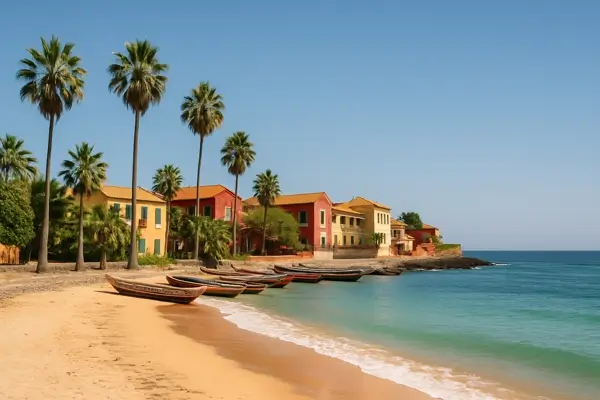
Westernmost Country in Mainland Africa – Senegal is located at the westernmost point of mainland Africa, with the Atlantic Ocean forming its entire western border.
Dakar – A Vibrant Capital – The capital city, Dakar, is a bustling hub of culture, music, and art, and it's also known for hosting the famous Dakar Rally (formerly held in Africa).
Gorée Island – A UNESCO Site – Just off the coast of Dakar, Gorée Island is a powerful historical site that served as a major center for the Atlantic slave trade, and today hosts the House of Slaves Museum.
Land of Teranga (Hospitality) – Senegal is often called the "Land of Teranga," a Wolof word meaning hospitality, which reflects the country's warm, welcoming culture.
French Is the Official Language – Due to its colonial history, French is the official language, but local languages like Wolof, Pulaar, and Serer are widely spoken.
Rich Musical Heritage – Senegal is a musical powerhouse, home to mbalax music and legendary artists like Youssou N'Dour, blending traditional African rhythms with modern influences.
Pink Lake (Lac Rose) – Lake Retba, also known as the Pink Lake, is famous for its salty, rose-colored waters, caused by algae and high salt content, attracting both visitors and salt harvesters.
Predominantly Muslim Nation – About 95% of Senegal’s population is Muslim, and the country is known for its religious tolerance and peaceful coexistence of faiths.
Diverse Wildlife and National Parks – Senegal is home to Niokolo-Koba National Park, a UNESCO site rich in wildlife, including antelopes, hippos, chimpanzees, and over 300 bird species.
Democracy and Stability – Senegal is one of West Africa’s most stable democracies, with a history of peaceful political transitions and active civic life.
